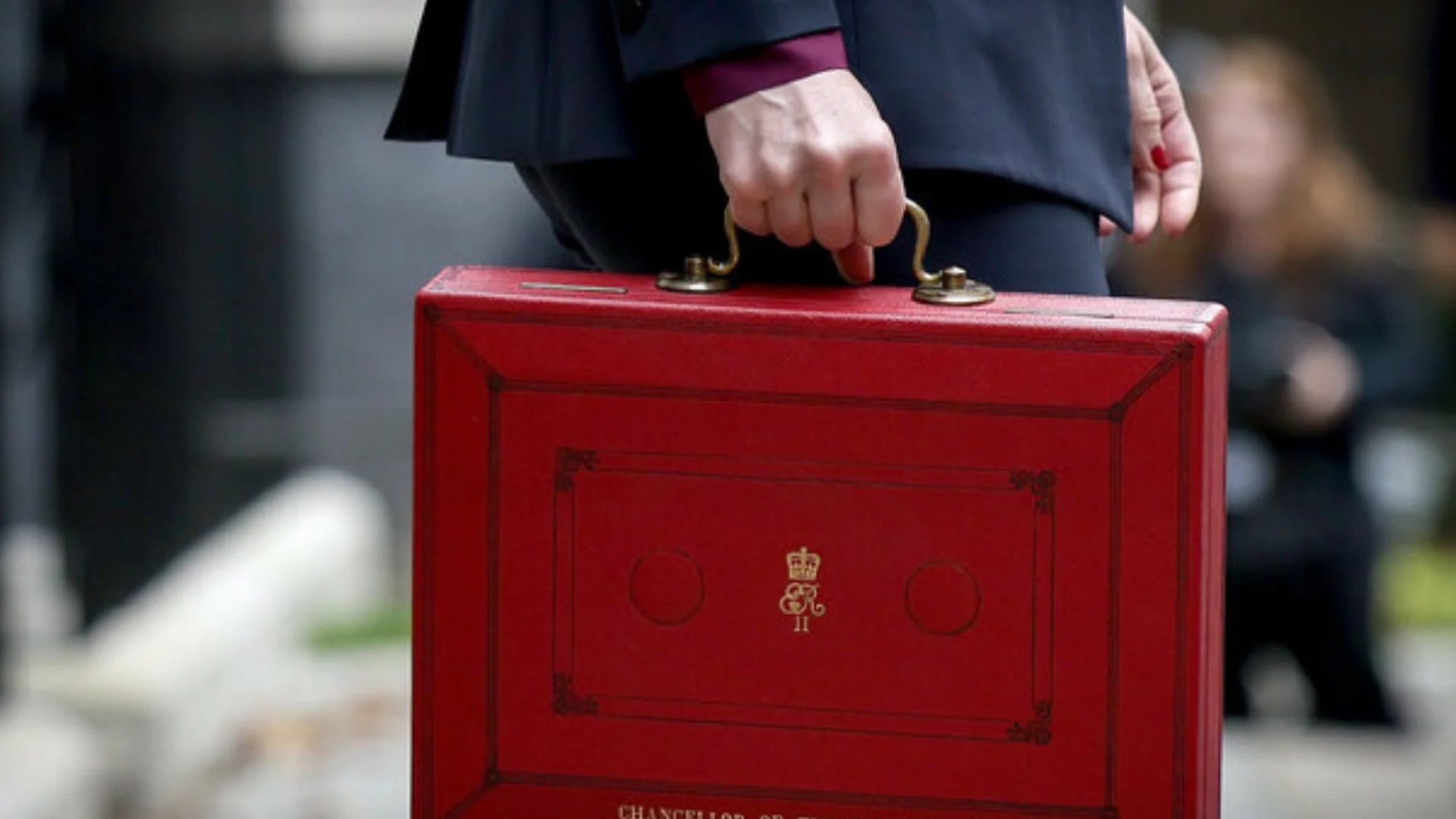This note contains an overview of our market views, what we are watching, and our portfolio strategy. Any reference to portfolio positioning relates to our flagship discretionary portfolios. Clients with bespoke or advisory portfolios should consult their Client Advisor for the latest portfolio update.
The measures include tax rises for landlords, property owners, savers and investors, while Income Tax on earnings, VAT or Employee’s National Insurance Contributions (NIC) remain unchanged. Key announcements include another freeze to income tax bands, a 2% increase to savings, property and dividend tax rates, and the introduction of a mansion tax on properties over £2m. A welcome surprise was the decision to change the implementation of the 100% Business Property Relief cap, allowing spousal transfers on death.
We understand that some of these changes may impact you and your family, and we’re here to support you through any uncertainty. To help guide you through today’s announcement, we’ve provided a summary of key points below.
From April 2026, dividend tax rates will rise by 2% at both basic and higher bands, increasing the rates to 10.75% and 35.75%, respectively. The additional rate remains at 39.35%.
From April 2027, savings and property income tax will also increase by 2% across basic, higher and additional tax bands, reaching 22%, 42% and 47%, respectively.
It is important to note that Scottish taxpayers currently pay the same rate on dividend and savings income as the rest of the UK, but property income falls under the devolved Scottish Rate of Income Tax system. It remains unclear whether Scotland will mirror the change to property tax.
The freeze on income tax bands has been extended by three years to 2031. This is expected to be the largest revenue generator in the Budget, as rising wages push more taxpayers into higher rate bands over time.
From April 2029, a new £2,000 cap will apply to salary sacrifice pension contributions that attract NI relief. Both employer and employee NI relief will be lost on amounts above this threshold. This means higher-rate taxpayers will lose 2% in employee NI relief compared to 8% for basic-rate taxpayers. Employers will lose 15% relief regardless of the employee’s tax status. For example, an individual earning £100,000 p.a. contributing 5% via salary sacrifice would lose £60 p.a. in NI relief, while their employer would lose £450.
From April 2028, a new ‘Mansion Tax’ will apply to properties worth more than £2 million. This will be levied as a council tax surcharge, starting at £2,500 and rising to £7,500 for properties valued at £5 million or more.
From April 2026, the 100% inheritance tax relief on Business Property Relief (BPR) and Agricultural Property Relief (APR) will be capped at £1,000,000 per individual, reducing to 50% thereafter. Today’s announcement confirms that, on the loss of a spouse, the survivor will then inherit their £1,000,000 threshold. This effectively doubles the amount that is eligible for 100% relief on second death to £2,000,000 for married couples.
We welcome this change as it could take the pressure off farmers and business owners who want to pass their business to the next generation, but lack the liquidity to cover inheritance tax (IHT).
This policy announcement does not impact the tax treatment of AIM-listed shares on death from April 2026, which will receive 50% inheritance tax relief without the benefit of any 100% threshold.
From April 2027, the cash ISA limit for those under 65 will be capped at £12,000, with an additional £8,000 available through stocks and shares ISAs. Those over 65 can continue to save £20,000 annually into cash ISAs. The Lifetime ISA will be scrapped, with a consultation planned for early 2026 on a new, simpler ISA product aimed at supporting first-time buyers.
The CGT relief on Employee Ownership Trust (EOT) sales has been reduced from 100% to 50%, meaning sellers will now face an effective CGT rate of around 12%. It’s unclear whether Business Asset Disposal Relief (previously Entrepreneurs Relief) will apply to this type of business sale.
From April 2026, upfront income tax relief on VCT investments will be reduced from 30% to 20%. The scope for EIS and VCT qualification will expand to allow follow-on funding as businesses grow beyond the start-up phase.
There were concerns that pension tax-free cash could be limited but this did not transpire, and pension tax relief also remained unchanged. It was widely publicised in the run up to the budget that there could be wholesale changes to the IHT regime and gifting rules, however we were pleased to see that there was no announcement on these areas.
In terms of the market reaction, the Budget announcement sparked a rally in gilts, but its longer-term impact on growth, inflation, and interest rates remains uncertain, with potential near-term pressure on sterling.
This Budget looks like one of the most consequential in years. It aims to restore fiscal credibility after previous episodes of bond and currency market instability. The fiscal stance leans towards austerity to stabilise the debt trajectory and reduce the risk of bond-market disruption and sterling volatility. That said, most of the adjustments comes from tax increases rather than deep spending cuts.
We think the Budget and the projected fiscal headroom, combined with a weak economic environment, should be supportive for gilts. Fiscal consolidation tends to reduce inflation, which keeps rate cut expectations alive and helps anchor long-term yields. Ahead of the Budget, we increased our position in gilts to a larger overweight to lock in attractive yields before they potentially decline next year following Bank of England rate cuts.
The Budget is tougher for near-term economic and earnings growth, with households and businesses likely feeling the squeeze. That should help contain inflation and is one of the reasons why we expect the Bank to cut rates again soon. This could possibly weaken sterling against the euro, as the European Central Bank appears to have ended its rate cutting cycle. We still expect sterling to strengthen slightly against the US dollar, given that we anticipate more rate cuts from the US Federal Reserve.
We’re tactically overweight the FTSE 100 equity index, which provides diversification when combined with US equities. The FTSE 100 offers exposure to global companies in value-oriented sectors such as financials, energy and consumer staples. It tends to be more defensive and yield-oriented, complementing the US equity market’s growth sectors like technology, communications and consumer discretionary.
Brown Shipley takes great pride in delivering comprehensive support, across our core services of Investment Management, Wealth Planning and Lending. If you have any questions, please speak with your Client Advisor.
Important Information
Information correct as of 26 November 2025.
• Investing involves risks and the value of investments may go up or down.
• Business & Tax planning are not services regulated by the Prudential Regulation Authority or the Financial Conduct Authority.
• This document is for information purposes only, does not constitute individual (investment or tax) advice and investment decisions must not be based merely on this document.
• We recommend that you seek professional tax and legal advice to understand your personal tax liabilities. This will depend on personal circumstances and the prevailing tax rules, which are subject to change.
• Brown Shipley and its employees cannot be held liable for any loss or damage arising out of the use of (any part of) this document.
This document is designed as marketing material. This document has been composed by Brown Shipley & Co Ltd ("Brown Shipley”). Brown Shipley is authorised by the Prudential Regulation Authority and regulated by the Financial Conduct Authority and the Prudential Regulation Authority. Registered in England and Wales No. 398426. Registered Office: 2 Moorgate, London, EC2R 6AG.
This document is for information purposes only, does not constitute individual (investment or tax) advice and investment decisions must not be based merely on this document. Whenever this document mentions a product, service or advice, it should be considered only as an indication or summary and cannot be seen as complete or fully accurate. All (investment or tax) decisions based on this information are at your own expense and at your own risk. You should (have) assess(ed) whether the product or service is suitable for your situation. Brown Shipley and its employees cannot be held liable for any loss or damage arising out of the use of (any part of) this document.
The contents of this document are based on publicly available information and/or sources which we deem trustworthy. Although reasonable care has been employed to publish data and information as truthfully and correctly as possible, we cannot accept any liability for the contents of this document, as far as it is based on those sources.
Investing involves risks and the value of investments may go up or down. Past performance is no indication of future performance. Currency fluctuations may influence your returns.
The information included is subject to change and Brown Shipley has no obligation after the date of publication of the text to update or amend the information accordingly. Accordingly, this material may have already been updated, modified, amended and/or supplemented by the time you receive or access it.
This is non-independent research, and it has not been prepared in accordance with legal requirements designed to promote the independence of investment research and is not subject to any prohibition on dealing ahead of the dissemination of investment research.
All copyrights and trademarks regarding this document are held by Brown Shipley, unless expressly stated otherwise. You are not allowed to copy, duplicate in any form or redistribute or use in any way the contents of this document, completely or partially, without the prior explicit and written approval of Brown Shipley. Notwithstanding anything herein to the contrary, and except as required to enable compliance with applicable securities law. See the privacy notice on our website for how your personal data is used (https://brownshipley.com/en-gb/privacy-and-cookie-policy).
© Brown Shipley 2025



